On February 1, 2021, Myanmar’s military leadership organized a coup to remove the democratically elected civilian government — detaining civilian government leaders and reversing the previous decade’s progress on democratic governance, economic development, social welfare, civil rights and fundamental freedoms.
Immediately after the coup, communities across the country responded with nonviolent protests — and a nationwide movement of civil disobedience emerged. But in the face of the military’s violent crackdown on peaceful protests, the anti-coup movement also began to employ violence through open armed conflict and asymmetric warfare. Today’s crisis in Myanmar poses a major challenge to U.S. foreign policy in a region of geopolitical significance. The Myanmar Study Group report provides an assessment of the conflict and lays out recommendations for the U.S. response.
Myanmar Study Group Final Report

Anatomy of the Military Coup and Recommendations for U.S. Response
The final report summarizes the study group’s discussions and recommendations. Although convened by USIP, the views and recommendations contained in the final report are solely those of the Myanmar Study Group and not of USIP itself.
Featured Resources
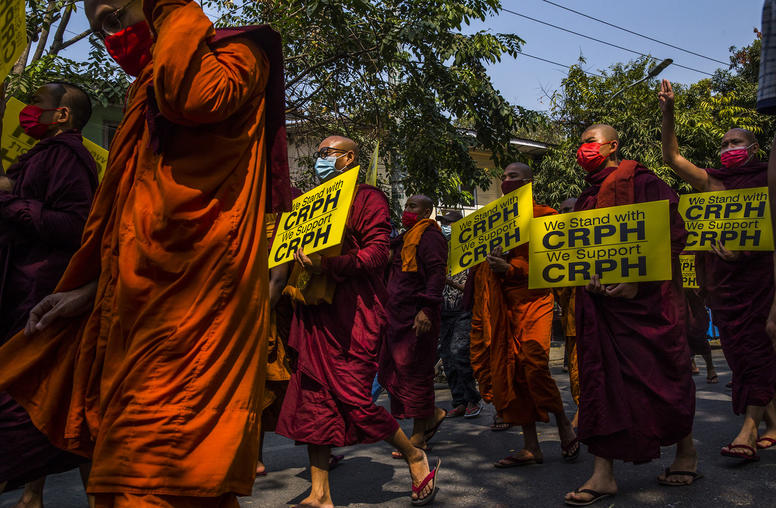
Myanmar Coup: Military Regime Seeks to Weaponize Religion
In a propaganda blitz, the military portrays itself as the guardian of Buddhism and stokes fear of a Muslim takeover.
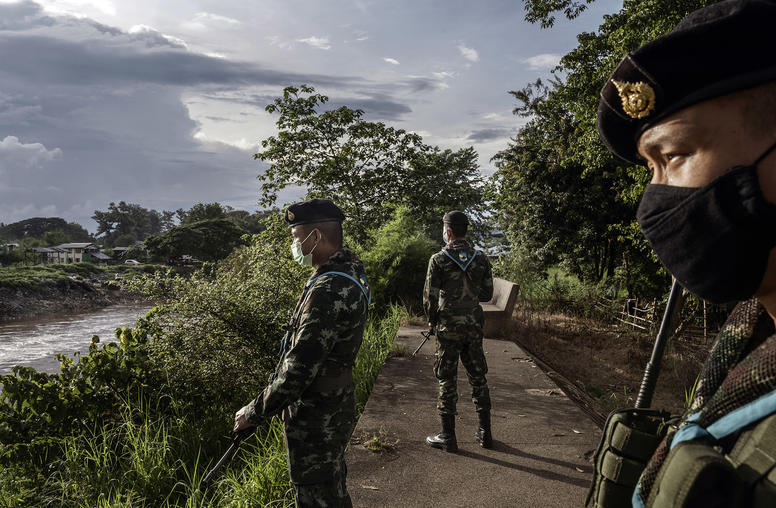
Three Priorities for U.S.-Thailand Cooperation in Myanmar
As Secretary Blinken visits Southeast Asia, Thailand’s influence in Myanmar offers an inroad to address the post-coup crisis.
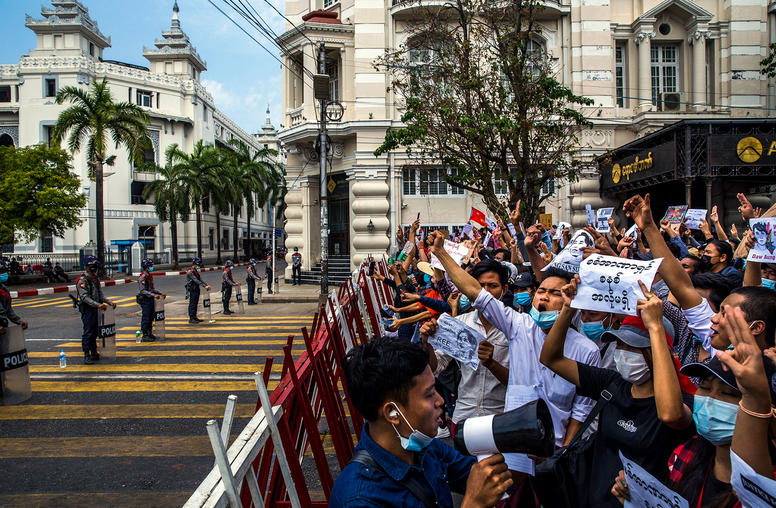
Myanmar Struggles to Reverse a Coup; Democracies Can Help
An army leader miscalculated the costs of wresting back power. Now the country reels from the violence.
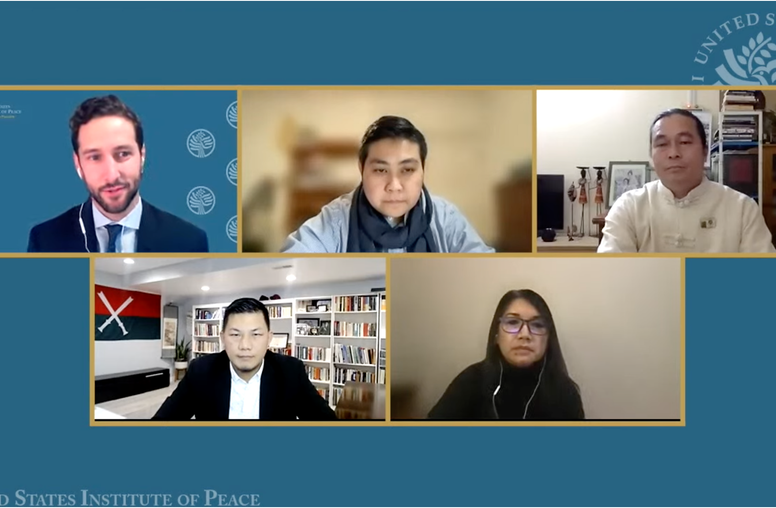
Panel Discussion
The Shocking Rise in Coups - Myanmar, a USIP event examining the dynamics driving four of the seven coups and coup attempts that we’ve seen over the past two years.

Myanmar’s Ongoing War Against Women
The country is at high risk for worsening sexual violence. How can the international community respond?
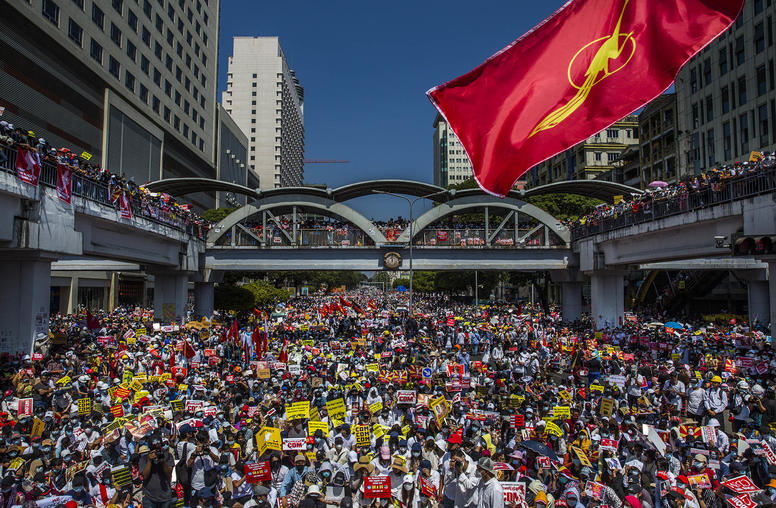
A New Myanmar Forum Aims to Unite Democratic Forces
Dialogues within a ‘National Unity Consultative Council’ may strengthen the country’s fractious democracy movement and advance sustainable peace.

Priscilla Clapp on the Violent Fallout from Myanmar’s Coup
From Priscilla Clapp, “when the civilian protests persisted beyond a month, the military began to panic … As a result, the country has descended into chaos and widespread indiscriminate violence.”






